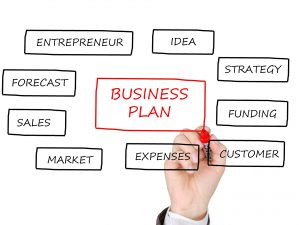Not a day goes by that we don’t hear the term “startup” on TV, in the newspapers, in companies, or on social networks. However, it is often misused. The term “startup” is a combination of “start” and “up”. We can conclude that a startup is a company that is starting its activities and that can potentially have a strong growth.
Moreover, let’s quote Eric Ries, the author of “Lean Startup”, to complete our understanding of the term startup. He defines a startup as:
“A human institution designed to create a new product or service under conditions of extreme uncertainty.
Being a startup means being in a temporary state of experimentation, as the company is still looking for the right business model to start the “up” phase.
In the end, the startup can either find the right business model and reach an advanced level of stability, or die along the way for lack of revenue.

Key terminologies of the startup culture
Accelerator/Incubator:
Tailor-made service for startups that need a boost in terms of strategic mentors, office space and sometimes funding to help them grow.
Angel Investor:
An individual who provides capital to a startup in exchange for a stake in the company. Angels investors generally intervene during the first phase of development of startups where the risk is the highest. Moreover, they focus on helping startups rather than on the potential profits they can get from them.
Boot strapping: Using personal wealth and the finances of loved ones to fund the operations of your startup.
Burn Rate Burn Rate: the Burn Rate allows to know how fast a startup burns cash to continue operations.
Business Model :
The business model specifies the positioning of the company, the objectives of the activity, the means and resources at its disposal to achieve them.

Deck
(Pitch Deck): A PowerPoint presentation usually of 10 slides that covers all aspects of your business in a concise and convincing way.
Exit Strategy
How do you plan to sell your business? Who will be the buyers and why?
Freemium
This business strategy consists in giving the basic product for free and trying to sell the premium features to the user community by converting them into buyers.
FMA = First Mover Advantage
The advantage of being the first entrant in a given market. However, it is important to know that being the “First Mover” involves strategic risks with regard to the competition.
Growth Hacking A term coined by Sean Ellis to describe a marketing technique that focuses on the rapid pursuit of scalable growth through non-traditional, low-cost tactics such as the use of social media.

Lean Startup
The main mission of a lean startup strategy is to prove the business concept as quickly and cheaply as possible.
Leverage
Leverage: use something – technology, strategic partnerships, human resources, etc. – to leverage your business. – to your advantage.
Market Penetration
Market penetration is a key element in the strategic planning of a startup’s development. This is the rate that measures the market coverage of a service or product.
Monetize
How does the startup plan to generate revenue?
MVP (Minimum Viable Product)
the basic version for the launch of a product. The MVP is required to obtain a “proof of concept”. Often used in the creation of new software that will be beta tested and later upgraded with additional features.

Pivot
change in strategic direction as a result of new data collected.
Proof of Concept
Proof of Concept: demonstration of the feasibility of a concept or idea on which a startup is based.
“ROI (Return on Investment)”
what the investor can expect to get for what he puts in by investing in startups. Economic logic dictates that every company or investor is looking for a positive and increasing ROI.
SaaS (Software as a Service
): the sale of subscriptions to use the software marketed by the startup.
Scalable
A business concept that can grow exponentially through massive buy-in from a large community of users.
Seed Seed is the first official round of funding for a startup.
Series
refers to the specific funding cycle of a startup.
Sweat Equity
: shares in the startup are provided in exchange for the work done. It’s a good recruiting tool for startup founders looking to attract passionate talent.
Value Proposition
The unique value proposition that distinguishes one startup from another.
VC/Venture Capitalist
Venture Capital is the funding that investors provide to startups that have long-term growth potential.
The startup culture in Mauritius
There is a need to educate and popularize the terminologies of the startup culture among young entrepreneurs who represent the next generation. Fortunately, we can observe the establishment of a “startup culture” in Mauritius with the growth of blogs, websites and other information platforms that promote the development of critical thinking. Moreover, the multiplication of networking events by and for entrepreneurs clearly indicates that there is a desire to come together, to help each other and to share strategic information for the good of the community.




